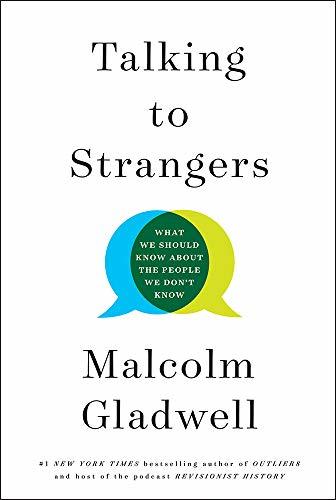
Talking to Strangers: What We Should Know About the People We Don't Know
Book Description
What if every encounter held the potential for misunderstanding? In "Talking to Strangers," Malcolm Gladwell dives into the mysteries of human connection, unraveling the profound ways we misinterpret the intentions and emotions of those we don’t know. From police encounters to high-stakes negotiations, each story reveals the hidden dangers of our assumptions, illustrating how simple conversations can spiral into catastrophic consequences. With a blend of gripping anecdotes and sharp insights, Gladwell challenges us to rethink our perceptions. Are we truly equipped to navigate the intricate web of strangers around us, or are we doomed to repeat our past mistakes?
Quick Book Summary
"Talking to Strangers" by Malcolm Gladwell delves into the ways our assumptions and social habits fail when interpreting the intentions and behaviors of people we don’t know well. Gladwell uses real-life case studies—from high-profile arrests to international espionage—to illustrate how our reliance on trust, stereotypes, and faulty signals leads to profound misunderstandings and sometimes tragic consequences. He argues that we are fundamentally ill-equipped to make sense of strangers because our intuitive tools—like assuming honesty or using body language—are deeply flawed. Through engaging storytelling and psychological research, Gladwell challenges readers to reconsider how they judge and interact with unfamiliar individuals, urging for a new approach to communication, skepticism, and empathy.
Summary of Key Ideas
Table of Contents
Default to Truth: Our Bias Toward Trusting Strangers
Malcolm Gladwell opens by presenting the central paradox: although we live in a society increasingly filled with strangers, our skills for interpreting their actions and intentions are shockingly inadequate. He introduces the concept of “default to truth”--the idea that we are evolutionarily hard-wired to trust others until given a clear reason not to. This tendency works most of the time but exposes us to grave errors in the complex, ambiguous interactions that define modern society. Gladwell uses high-stakes examples like the Sandra Bland case and the failed identification of spies to demonstrate how defaulting to truth can have fatal consequences.
The Limits of Transparency and Body Language
Gladwell examines our flawed belief in “transparency”—the assumption that people’s internal states are accurately reflected in their external behavior. He offers vivid stories, such as the Amanda Knox trial and Cuban spy Ana Montes, to show how mismatches between demeanor and reality lead to catastrophic misjudgments. Gestures, facial expressions, and other body language cues often do not reliably signal intentions or truthfulness, and relying on them can be misleading.
The Dangers of Mismatched Communication
The book further explores the dangers of mismatched communication and cultural misunderstandings. Gladwell draws from the world of law enforcement, espionage, and business, showing how misunderstanding gestures, tone, or social norms leads to disastrous outcomes. He shares how interrogation methods can fail and why systems dependent on “reading people” frequently break down. These stories underscore the complexity of cross-cultural and unfamiliar interactions.
Case Studies of Misunderstanding and Catastrophe
Using case studies, Gladwell illustrates the ripple effects of poor communication with strangers at both personal and institutional levels. The tragic deaths, wrongful convictions, and ruined careers featured in the book stem from systemic blindness to our own biases. Gladwell contends that these recurring failures are not individual shortcomings but are rooted in flawed social tools and the illusory confidence we have in our abilities to “read” others.
Rethinking How We Approach Strangers
In concluding, Gladwell suggests a need for humility and caution in our interactions with strangers. He argues for a radical reevaluation of policing, interviewing, diplomacy, and daily communication with those we don’t know. Accepting how little we truly understand about strangers, he advocates for empathy, skepticism, and structural changes in how institutions manage unfamiliar interactions. "Talking to Strangers" ultimately urges readers to recognize and correct the deep-seated errors that drive tragic misunderstanding in our increasingly interconnected world.
Download This Summary
Get a free PDF of this summary instantly — no email required.





